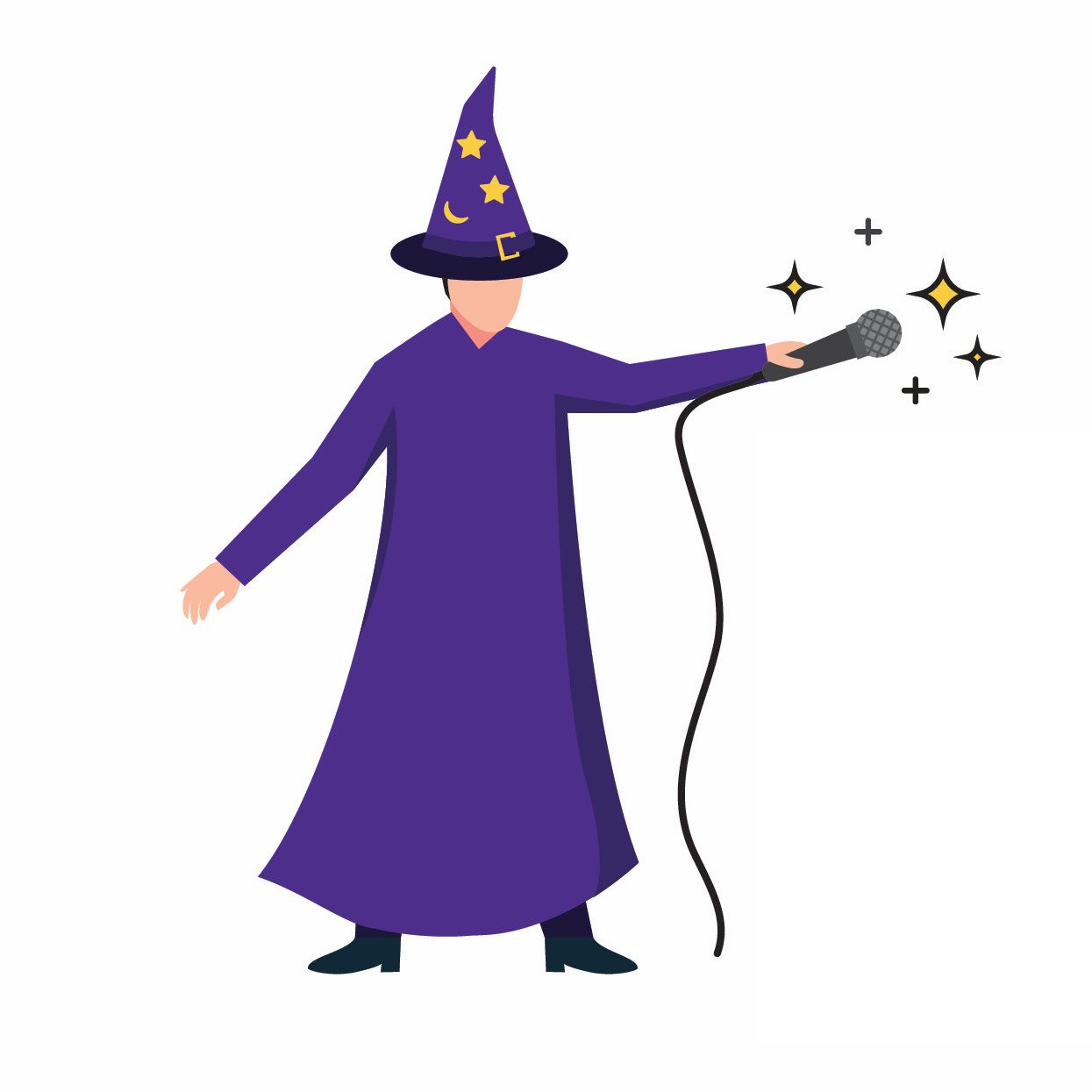Podcasting has come a long way from being a niche medium to becoming a mainstream channel for storytelling, education, and entertainment. With the rise of artificial intelligence (AI), podcasters now have access to tools that can streamline production, enhance quality, and even spark creative breakthroughs. We’ll take a quick look at the Future of Podcasting with AI—and how you can use it to take your show to the next level.
Editing Made Effortless
For many podcasters, editing is the most time-consuming part of the process. Enter AI-powered tools like Descript and Adobe Podcast (formerly Project Shasta). These platforms allow podcasters to edit audio like a text document, cutting out filler words like “uh” and “um” with a single click. Descript’s overdub feature can even recreate your voice for seamless edits, saving you from needing to re-record small sections.
Meanwhile, Adobe Podcast uses AI to enhance sound quality, automatically balancing audio levels and reducing background noise. With such tools, even beginners can produce professional-grade audio with minimal effort.
Transcription and Accessibility
Accurate transcriptions are a must-have for podcasters looking to boost SEO and accessibility. AI tools like Otter.ai, Sonix, and Rev can transcribe episodes quickly and accurately. These transcripts not only make your content more discoverable but also allow listeners who are hard of hearing—or those who prefer reading—to engage with your podcast.
Some platforms go a step further, providing editable transcripts that can double as show notes or blog content, giving you more bang for your buck.
Show Notes and Summaries
Creating compelling show notes can feel like a chore, but it’s an essential step for engaging listeners and improving discoverability. Tools like ChatGPT or Jasper AI can generate summaries, key takeaways, and even suggested titles based on your episode content. All you need to do is provide a brief outline or transcript, and the AI handles the rest.
This can save hours of brainstorming while ensuring your notes are polished and professional.
Voice Cloning and Synthetic Voices
AI has made it possible to generate high-quality synthetic voices that sound surprisingly human. Platforms like ElevenLabs or Respeecher allow podcasters to create voiceovers without recording a single word. While this might not replace your personality as a host, it can be handy for creating character voices, narration, or even ads.
Voice cloning also offers a unique solution for podcasters who need continuity. Forgot to record a sponsor message? With tools like Descript’s overdub, you can replicate your voice and add in the missing audio seamlessly.
Idea Generation and Scriptwriting
Struggling with writer’s block? AI-powered writing tools such as ChatGPT, Writesonic, or Sudowrite can help you brainstorm topics, craft episode outlines, and even write full scripts. These tools can adapt to your style and tone, making it easy to produce engaging, consistent content.
Want to ensure your script flows naturally? Use AI to analyze readability and suggest tweaks for better pacing or clarity.
Marketing and Audience Engagement
AI tools don’t stop at production—they also shine in marketing. Platforms like Canva AI can generate eye-catching podcast cover art and social media graphics, while tools like Lately.ai analyze your content to create optimized posts and tweets.
For audience engagement, AI-driven analytics tools like Chartable or Podbean Insights provide data on listener demographics and behavior, helping you tailor content and marketing strategies to grow your audience.
Language Translation and Localization
Want to reach a global audience? AI-powered translation tools like DeepL or iTranslate can help you create multilingual versions of your podcast. Some transcription platforms also offer built-in translation services, enabling you to tap into international markets without a language barrier.
The Future of Podcasting with AI
The Future of Podcasting with AI is upon us. AI tools are more than just conveniences—they’re creative allies, enabling podcasters to focus on storytelling and content creation rather than getting bogged down by technical details. As these tools evolve, the possibilities for podcasting are endless, from real-time editing during live recordings to hyper-personalized content recommendations for listeners.
That said, it’s important to strike a balance. While AI can enhance efficiency, your unique voice and human touch are what truly resonate with listeners. Use AI as a supplement, not a substitute, and let it empower you to create your best work yet.
Which AI tool will you try first? Let us know on my LinkedIn page. And as always, don’t hesitate to contact the Podcast Wizard if I can help you with your production endeavors.

